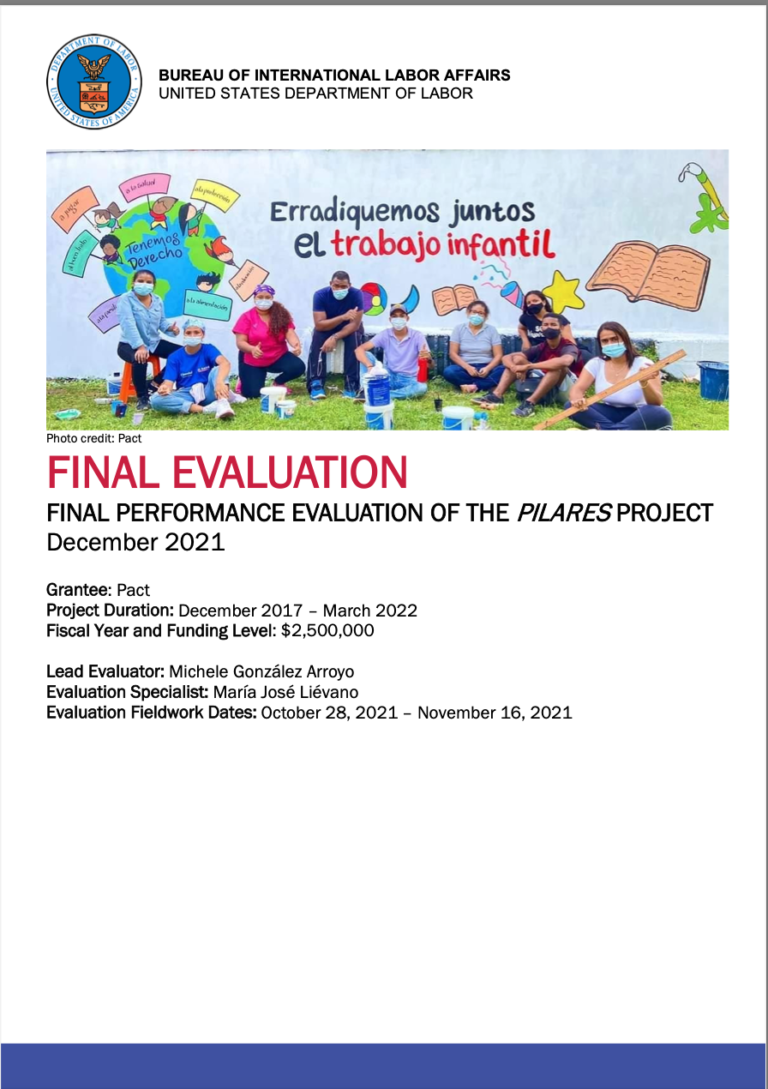On December 15, 2017, USDOL/ILAB awarded Pact U.S. $2,000,000 over a three-year period to support the project entitled “Building the Capacity of Civil Society to Combat Child Labor and Forced Labor and Improve Working Conditions,” or “Pilares” (Spanish for “pillars”). In September 2020, USDOL awarded Pact an additional $500,000 and a 12-month extension to implement recommendations from the midterm evaluation and further strengthen the capacity of Civil Society Organizations (CSOs). A subsequent 3-month no-cost extension brought the total funding amount to $2,500,000 and a new project end date of March 2022.
The Pilares project is intended to forward progress in reducing child labor (CL) and promoting acceptable conditions of work (ACW) in Colombia’s ASGM sector through the work of CSOs. The project has been implemented in four municipalities in which ASGM is an essential source of livelihood, and in which CL and OUWC are prevalent: El Bagre and Zaragoza in the Bajo Cauca region, department of Antioquia; and Barranco de Loba and San Martín de Loba in the Sur de Bolívar region, department of Bolívar. The two targeted regions of Bajo Cauca and Sur de Bolivar experience high rates of poverty, illegal economies, and armed conflict. As such, they have been prioritized by the Government of Colombia’s Agency of Territorial Renovation for regional development programming in support of the peace process.

